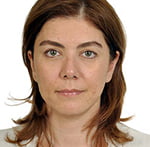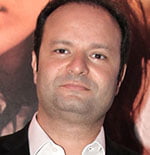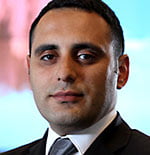Takeovers in Turkey
Turkish drama is making waves around the world, but unlike other intellectual property markets, the country has seen little M&A activity so far. Richard Middleton reports.

Global Agency’s Magnificent Century
If anything’s going to whet the appetite of mergers and acquisitions executives it’s the emergence of a production community delivering hit after hit on a global scale. It’s happened in the UK, Scandinavia and Israel, leading to plenty of M&A deals as global players buy into creativity and rights.
Similar levels of creativity have emerged in Turkey over the past few years, with a select band of production houses finding local audiences and international buyers for their shows. Production values and budgets are skyrocketing while broadcasters across the Balkans and the Middle East are hooked. Turkish dramas are now breaking into telenovela-loving Latin America, while Fox in the US is remaking The End, a show from Turkish production firm Ay Yapim that first aired on ATV.
It seems there’s money to be made, so is a wave of M&A deals in Turkey on the horizon?
Mehmet Demirhan, deputy head of TV at pubcaster TRT, says the increasing tenacity of Turkish prodcos in retaining rights suggests this is the case. But he also points out that Turkey is a newcomer to the international scene, and the global appeal of its drama had been “unexpected” among producers.
However, that is all changing. “Producers initially weren’t ready for the global demand for their shows, but now the stones are fitting into their proper places,” he says.
For Turkish channels, the balance of power seems to be shifting. Foreign rights now usually remain with the production companies, the biggest of which have become seasoned and formidable negotiators.
Ziyad Varol, head of sales at Turkish network ATV, which has already aired Fugitive, Peace Street and The Noble of Today, says trying to wrestle rights from Turkey’s high-profile production firms is increasingly tricky. “Over the past five years the number of international sales brought to the channels and production companies has been incredible. The first thing they ask for now is the international rights. It’s becoming really difficult for us to retain anything.”

Idil Belli
With fast turnaround times, production companies are beginning to accumulate sizeable libraries of content, adds Idil Belli, general manager at Turkish producer-distributor Sera Film Services. “Before, it was the broadcaster taking all the rights for an unlimited period, or sharing the rights at least, but under certain conditions producers keep them all. It makes it more reasonable to imagine external investment in production companies.”
Execs at Discop in Istanbul in March agreed with this assessment but deals remain up in the air. The country’s uneasy political situation, and its effect on the economy, seems to be one factor. “Deals will happen for sure, but there needs to be some political and macro-economic stability,” says Varol.
Fredrik af Malmborg, MD of Eccho Rights, which handles the distribution of Ay Yapim’s content, agrees, adding: “The current political situation in Turkey is a bit unstable. The corruption scandals and the general tension around the current political leadership are, of course, risky for anyone investing in the country, not least the media sector.”
Wider issues are also at play, according to Malmborg, including the way some companies operate. “It’s a virgin and creative market, so any international firm that starts doing due diligence on Turkish production companies, even though some of them are very profitable, could get worried.”

Timur Savci
On the flip-side, Timur Savci, president and CEO at TIMS Productions, one of Turkey’s most prolific prodcos, argues that “business processes have now pretty much caught up with global standards,” adding that his firm has been in discussion with international outfits over the past year.
One major player that has already gone Turkish is Endemol, which six years ago set up a local prodco to make Wipeout for Show TV but recently expanded into drama production. Marina Williams, CEO of Endemol CEE and MENA, admits it can be a “risky” market. “If you compare it to other emerging markets, you normally get payments from broadcasters for pre-production so you can secure some advanced funding. In Turkey, unfortunately most of the broadcasters only pay on delivery, and that can be between 45 and 90 days from the broadcast air date. It’s a very cash-intensive process.”
The sheer number of Turkish prodcos could also be an obstacle, adds Izzet Pinto, CEO of Global Agency, which shops shows including global hit Magnificent Century, from TIMS. Competition is fierce and while the big Turkish drama players are cashing in, many smaller outfits are only just managing to make ends meet. Add this to the broadcasters’ somewhat cutthroat attitude to poorly performing shows and the risk of any entry becomes clear.
“The market is very crowded and Turkish broadcasters don’t seem to commit on a long-term basis,” adds Williams. “If the show doesn’t kick off well enough after four or six episodes it could well be axed.”
Some, such as Eccho’s Malmborg, also cite cultural differences as a reason for the lack of M&A deals so far. “Turkish producers want to build their companies their own way and aren’t necessarily dreaming of getting a salary from Holland or the US,” he says, adding that he knows of one company that’s turned down numerous offers in order to retain control.
Endemol’s Williams adds that corporate cultures don’t always fit. “Quite often local parties feel that rather than bringing them leverage having big international partnerships will delay them in their development,” she says.
Despite all this, big corporate takeovers are still rumoured and counter-rumoured and there’s little doubt among executives in the region that the stars will align at some point and hatfulls of cash will change hands.

Ziyad Varol
In the meantime, current players are getting their strategies in place. For the channels, it could be a case of adopting alternative revenue-sharing models with Turkish producers, says ATV’s Varol, while Malmborg suggests prodcos could team up to create their own international groups or partner with foreign distributors.
“There are a few international distributors that are strong in Turkey, and it could make sense to consolidate with producers,” he says. “But it’s a sign of health in the market that there is not too much vertical integration.” It’s one of the reasons he believes Turkish drama is successful, “because it’s more efficient to focus on each role. You don’t have a corporate environment with lots of bureaucracy.”
Leading broadcaster Kanal D has taken an alternative approach and is producing in-house, via D Productions, with recent series Secrets. But as drama production values and costs soar, it’s an increasingly risky path to take, at least according to most channel execs at Discop.

Peace Street
Varol adds: “We looked at it two or three years ago but it’s really difficult. There are a lot of production companies that are very good at their jobs and it’s something we would need to invest a lot in, and which would take considerable time. When things go well all would be perfect but after one or two flops the questions arise in people’s minds. And then you have to get more resources, which makes it more complex.”
Endemol, meanwhile, continues to establish itself in the country by building relationships – vital in Turkey – through its unscripted work and cherry-picking execs for its drama unit. Hulya Vural, ATV’s exec VP of drama, was appointed to oversee strategy, relationships and script development while Ozlem Yurtsever, an exec producer at Ay Yapim, was brought in as head of production. Its first scripted effort, Overturn (A La Bora), is currently being developed and Williams admits more “organic growth” will follow. “But that’s not to say we’re closing our eyes to acquisition opportunities,” he adds.
All this leaves the Turkish production industry feeling as if it’s on the brink. Distributors and channels are considering alternative strategies, Endemol is advancing and the swirling nature of the country’s politics and economy keeps everyone, including M&A execs, on their toes.
What’s certain is they will be ready to pounce if an opportunity does arise. But when that might be and how the demand for Turkish content will have changed by then no one can tell. Like one of Turkey’s well-travelled dramas, it will be interesting to watch.
















.jpg)




























